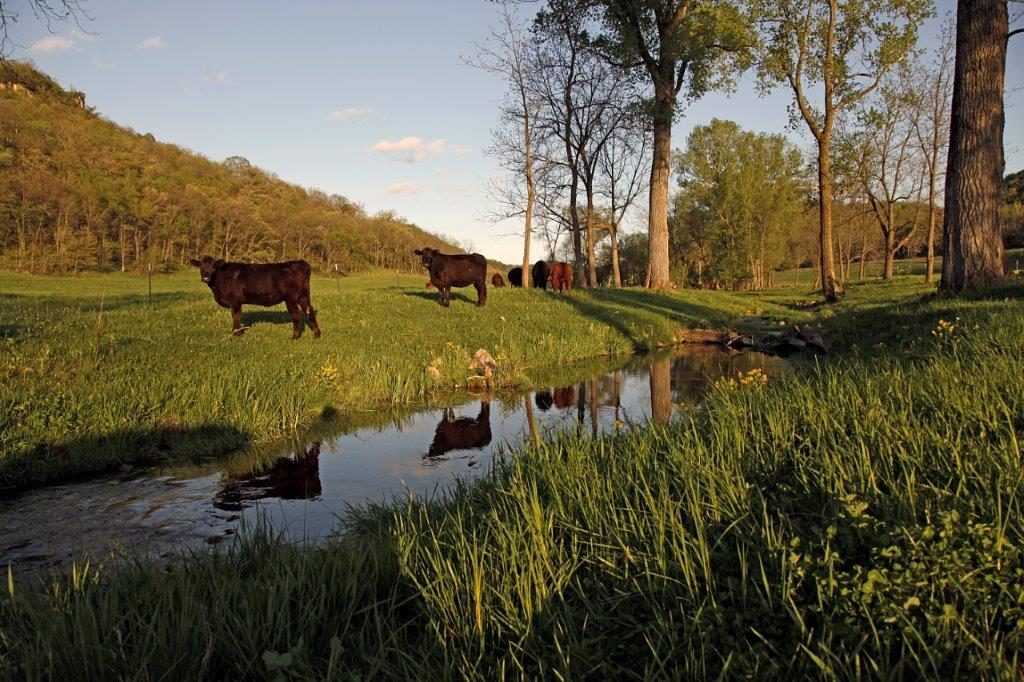Skip to content

Environmental Benefits of Grass-fed Beef and Pastured Pork
- Minimal use of fossil fuels — livestock harvest their own feed and spread their own manure!
- Reduced disturbance from machinery benefits wildlife, especially ground-nesting birds
- Cleaner water — Grasslands have less runoff and soil erosion than cropland
- Rotationally-grazed pastures have more earthworms and diverse soil microorganisms
Grass-fed Farms and Ranches Give Livestock a Better Life
- Cattle are born and raised on pasture — not feedlots and cement floored mega-barns. Nature pastures allow less hoof and leg injuries, rarely suffer the breathing problems and skin ailments that often affect cattle when kept indoors.
- Livestock have less flies and parasites surround them because the herd is constantly moved to fresh grass and kept ahead of the flies and manure. Less time standing and sleeping in muddy barnyards!
- Livestock are free to choose from wide variety of natural forages and can self-medicate from herbal remedies growing in the pastures.
- Less stress — when livestock have more room to roam and can enjoy the normal social behaviors inherent in herd animals, they are healthier and live longer.
- Calves are raised by their mothers (and aunts!). They are not fed milk replacer from bottles or buckets nor do they stay alone in hutches. This allows them to learn normal social behaviors of the herd. Did you know calves learn from their mother’s and other herd-mates what (and whatnot) to eat!
- Moving the herd every few days ensures no one area of the farm gets overused and eroded.
